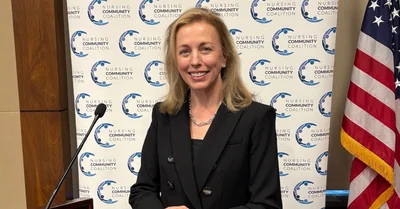U.S. government leaders advocated for increased protection of U.S. native reptiles and more during the 19th meeting of the Conference of the Parties to the Convention on International Trade in Endangered Species of Wild Fauna and Flora (CITES) held in Panama City, Panama.
The forum on international trade in plants and wildlife was held Nov. 14-25, a news release said. Participants “took a strong stance to conserve” marine turtles as well as improving CITES’ actions to end illegal trafficking in totoaba, restrict trade in live African elephants and curb illegal trade in cheetahs and jaguars.
“If CITES is to be successful in preventing the extinction of species threatened by international trade, we need to continue prioritizing investment in capacity-building efforts,” U.S. Fish and Wildlife Service Director Martha Williams said in the release. “CITES is only as strong as each of its member nations."
Williams noted CITES members supported regional cohorts to attend the CITES masters course at Universidad International de Andalucia in Spain, the release reported. This support is part of their commitment to building the CITES group.
"These emerging conservation leaders are the future of CITES, and many of the delegates who demonstrated outstanding leadership at CoP19 are graduates of this course," Williams added, according to the release." We will continue to support global efforts to increase the capacity of parties to implement CITES and ensure all voices are heard in this critical forum.”
U.S. delegates to the convention were Williams, Department of the Interior Deputy Assistant Secretary for Fish and Wildlife and Parks Matthew Strickler, Assistant Secretary of State for Oceans and International Environmental and Scientific Affairs and Special Envoy for Biodiversity and Water Resources Monica Medina and the Service’s Assistant Director for International Affairs Bryan Arroyo, the release said.
Others in the delegation were from the U.S. Department of State, U.S. Department of Justice, National Oceanic and Atmospheric Administration Fisheries, U.S. Department of Agriculture, U.S. Agency for International Development, the Association of Fish and Wildlife Agencies and U.S. Senate committee staff, according to the release.
Strickler said it will take the collaborative effort of all nations to solve problems, the release reported.
“With 1 million species facing extinction around the world, international trade often represents the tipping point for wildlife already impacted by habitat loss and degradation, climate change, invasive species or disease,” Strickler said in the release. “No one country can solve these problems alone. Seeing nations come together and take a collaborative, strong stance for wildlife over the past two weeks gives me hope that together we can meet the challenge. I am very pleased with our outcomes.”









